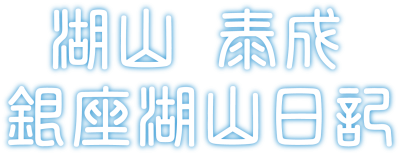Continuation and selection

Forty years ago, the Ginza hospital that went bankrupt had 93 beds.
Even at that time, it was said that private hospitals with fewer than 150 beds would not be sustainable in the future.
Even after 40 years, politicians still believe that there are too many small and medium-sized hospitals and too many private practitioners.
Japan’s medical system is a mixture of the ideas of Europe’s state-controlled system and America’s free economic system, and I think it had some good points during the period of population growth.
However, in an era of declining population and financial difficulties, they will go bankrupt in the future.
Either the national finances will collapse or hospitals and clinics will suffer from financial difficulties.
This tug-of-war has been going on endlessly between the government and industry organizations such as medical associations and nurses’ associations.
There is a shortage of doctors at emergency general hospitals who handle surgery.
Therefore, the hospital beds are vacant.
However, there is already a shortage of doctors at small and medium-sized hospitals.
The number of doctors is decreasing in depopulated and rural areas.
While maintaining the universal health insurance system, hospitals will be allocated appropriately throughout the country.
Yet, under a liberal economy, there is a free business system.
Even ideal policies with many positive aspects are reaching their limits.
The only thing that has been relatively successful in Japan’s system is the arrangement of compulsory elementary and junior high schools.
There have been many calls for liberalization and expansion of agriculture, but it will probably take a long time before the generational shift ends.
In today’s global free economy, it is difficult to continue industry operations under state control.
Japan has been ridiculed by China as the most successful socialist country in history, but even with that success, the future remains uncertain.
Then, the weeding out of medical providers will begin.
The future of Koyama G’s medical management will demonstrate its strength in this era of selection.
Integration of medical care and nursing care.
Online medical treatment is one such tool.
Proposal for a medical care dispensing complex.
Although we have wisdom from 40 years of hard-fought experience, we still lack human resources and funds.
Those who have wisdom should use their wisdom.
Those who have no knowledge should pay.
Those who have neither wisdom nor money should sweat it out.
This is a Vietnamese proverb that the writer Ken Kaiko liked to introduce.
Pulse oximeter 99/98/99
Body temperature 36.3 Blood sugar 134
Liberal Socialist
CEO Yasunari Koyama
